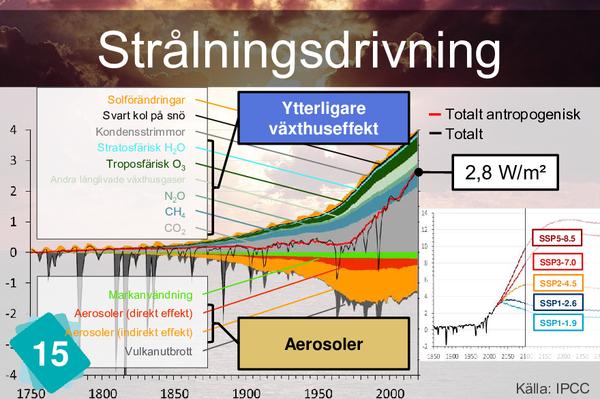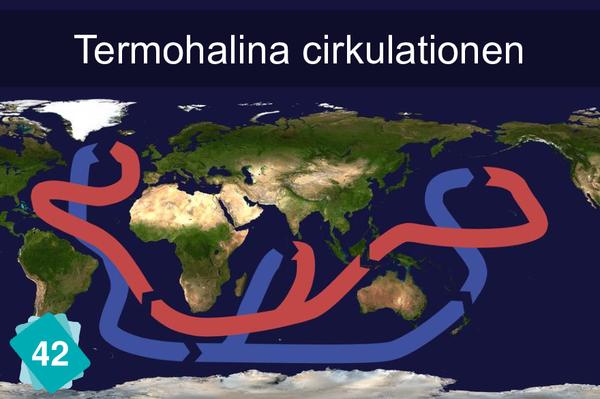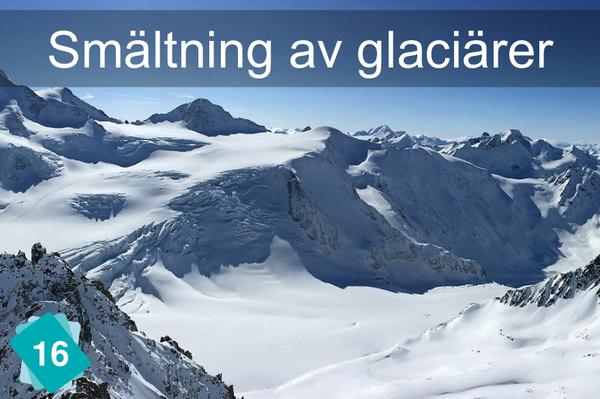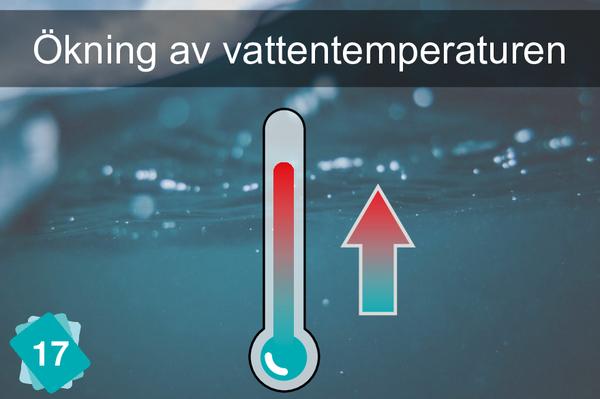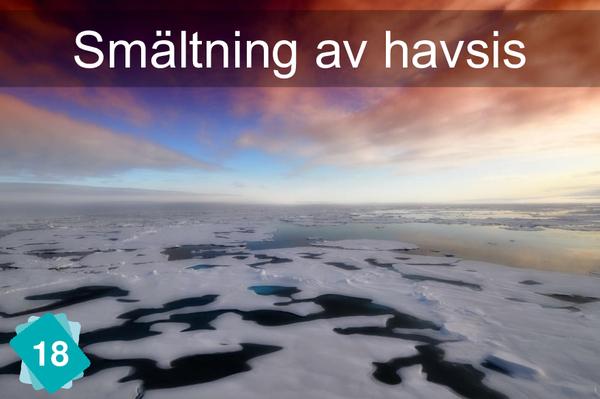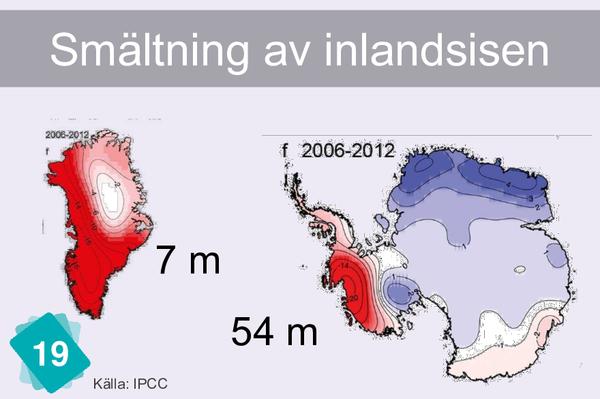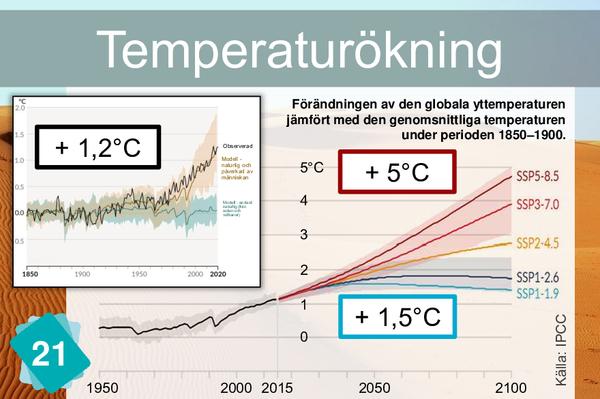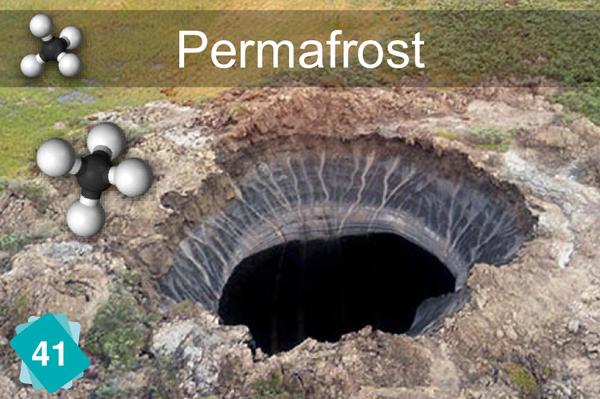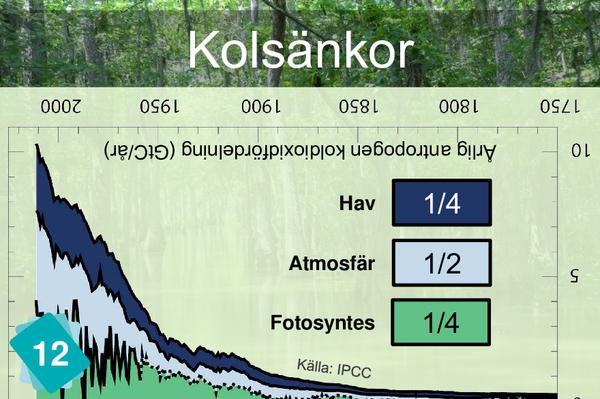14 - Energibudget
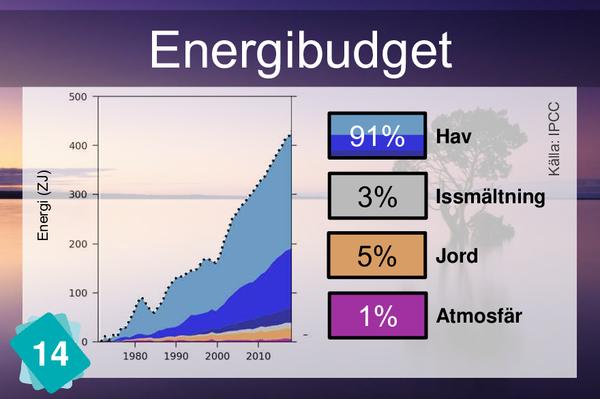
✏️ Den här förklaringen är ännu inte tillgänglig på ditt språk, du kan fylla i detta Google-formulär för att hjälpa oss!
I figuren visas, uppifrån och ner, i olika färger: i ljusblått, det övre lagret av havet, mellan 0 och 700m djup. I mörkare blått, det nedre lagret av havet, mellan 700m och 2000m. I mörkaste blått, det nedersta lagret av havet, under 2000m. I grått, de olika isarna. I orange, marken (utan is). I lila, atmosfären. Den streckade linjen representerar helt enkelt totala mängden energi. Den vertikala skalan är i zetta-joule (10^21 joule)[1].
AR6 WG1 Figure TS.13 (e) (drivning) s58 ↩︎
2Orsaker
Som nämnts på kort 14 är detta lufttemperaturen, ovan jord, i genomsnitt på jorden. Därför måste dessa två kort tas bort samtidigt om man vill ha en förenklad version
Värme absorberas vid havets yta. Den termohalina cirkulationen hjälper till att blanda vattenytan och djuphavet, vilket är nödvändigt för havet att absorbera energi.
5Konsekvenser
1Annan möjlig konsekvens
1Fel orsak
Syftet här är inte att säga att det inte finns något orsakssamband mellan dessa två kartor, utan att varna för risken att förväxla dem. Den första (Kolsänka), visar vart kolet tar vägen. Den andra (Energibudget) visar vart överskottsenergin på jorden tar vägen. De två begreppen är nära (i båda fallen handlar det om en fördelning), men de gäller inte samma sak: å ena sidan kolet, å andra sidan energin. Det som bidrar ännu mer till förvirringen är att atmosfären och havet finns på båda sidor.




